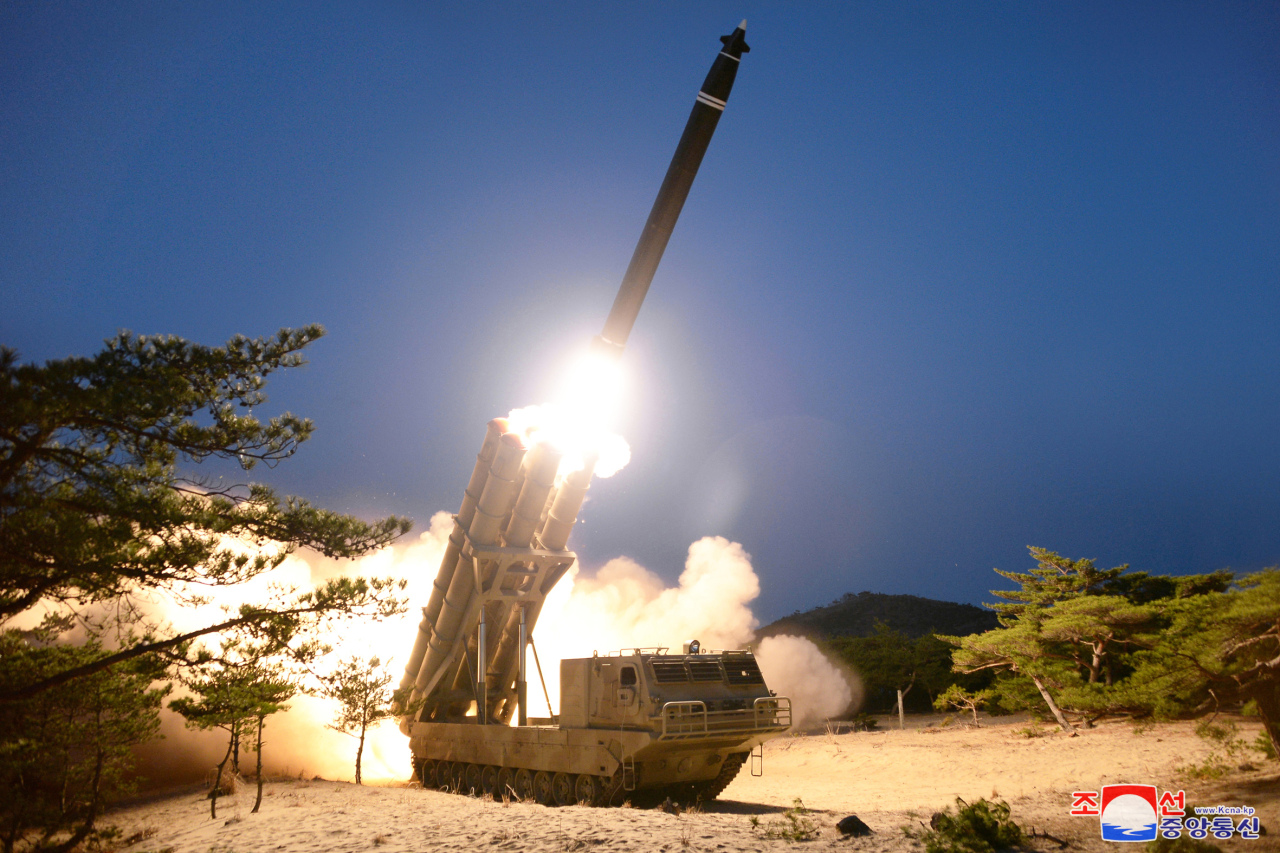 |
North Korea fires a pair of super-large rockets into the East Sea in its fourth weapons test of the year on March 29, 2020. (KCNA-Yonhap) |
North Korea could have manipulated images of its latest rocket launches, a German rocket expert told Voice of America. Markus Schiller, who specializes in mechanical and aerospace engineering, suspected the North edited some of the launch pictures made public.
“If you measure the dimensions of the missile which just seems to have left the launch tube, the missile is too large, diameter is too big and the length is too long to fit into that launch tube,” he said.
North Korea launched what it claimed to be two super-large rockets on Sunday, and the next day hailed a “successful” test, releasing launch photographs. But Schiller said the flame and lighting surrounding one of the rockets captured in one of the photographs look wrong.
“Some smoke in the background, but it is only in the background. The launcher is not enveloped in smoke and you can clearly see the very bright burning back of the missile, but it doesn’t affect the rest of the photos. It just doesn’t look natural,” he said.
Another North Korean watcher told VOA that it was too early to rule that the photo had been doctored. But it was suspicious that the North was unusually unavailable this time to release as many launch pictures as before.
“They’re being really weird about this. They’re not showing us nearly as many pictures of this system as they are showing us of the wheeled one and I don‘t know why that is,” said Jeffrey Lewis of the Middlebury Institute of International Studies in the US, referring to Pyongyang’s earlier launches.
Other experts told VOA that it was more suspicious that the North underwent a series of weapons tests involving super-large rockets, the its adaption of the US surface-to-surface missile ATACMS and the Russian ballistic missile Iskander.
“North Korea doesn’t have a lot of industry. … It makes no sense for them to be producing three different kinds of missiles that all do basically the same thing. Huge inefficiency,” said Ian Williams, deputy director of the Missile Defense Project at the Center for Strategic and International Studies.
By Choi Si-young (
siyoungchoi@heraldcorp.com)








![[Today’s K-pop] Blackpink’s Jennie, Lisa invited to Coachella as solo acts](http://res.heraldm.com/phpwas/restmb_idxmake.php?idx=644&simg=/content/image/2024/11/21/20241121050099_0.jpg)